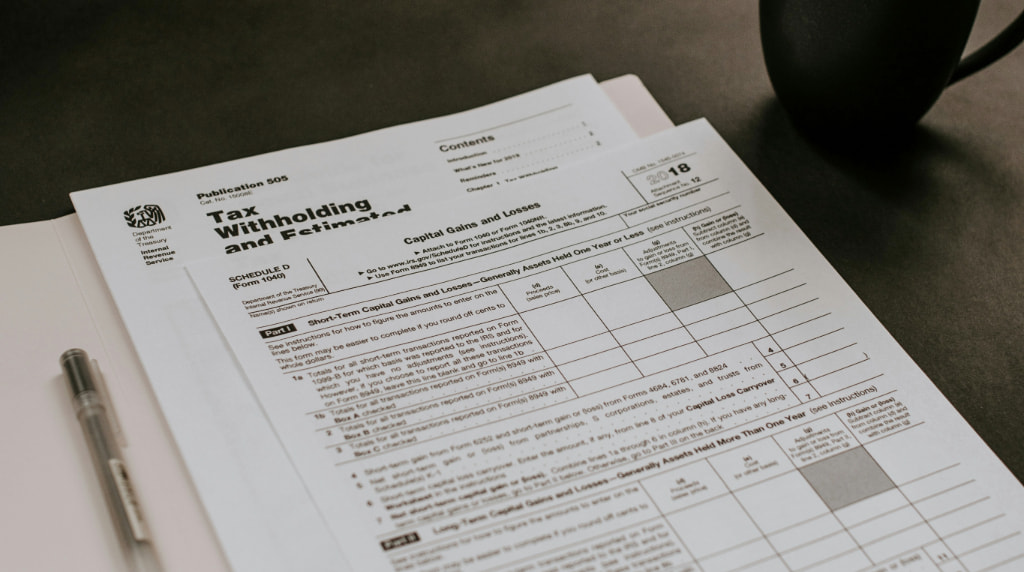When Casino Winnings Are Reported: IRS Rules, Deductions & Tips
The last thing on anyone’s mind after hitting a jackpot or flipping a queen of clubs for the Progressive Pai Gow Poker payout is the tax man. But rest assured, he’s waiting. It’s best to get your financial ducks in a row.

The IRS requires you to report all gambling winnings. © Kelly Sikkema, Unsplash
Do You Have to Report Casino Winnings to the IRS?
Well, the short answer is yes, and the long answer is also yes, but more confusing. But first and foremost, all income from gambling must be reported. This might be the $700 you won in the Fantasy Football contest, or it might be that 100k jackpot you won on slots, or it might even be that $500 you won in the church raffle. But the IRS wants to know about all gambling income.
Gambling income includes but is not limited to, winnings from lotteries, raffles, horse and dog races, and casinos, as well as the fair market value of prizes such as cars, houses, trips, or other non-cash prizes.– IRS, FAQs, IRS Tax Topics 419
The penalties for not reporting gambling winnings can be severe. Fines can be as high as 25,000 dollars and up to one year in jail, as well as other potential collection efforts such as garnishing wages.
A report from the Treasury Inspector General, released in September 2024, highlighted and drew considerable attention to the fact that from 2018 to 2020, more than 13 billion in gambling winnings weren’t declared by non-filers. That meant more than 1.5 billion in uncollected taxes for the IRS.
As part of its agreement with the Treasury Inspector General’s office the IRS has agreed to step up its pursuit of non-filers and those that misreport gaming income. This means that those who have not been filing need to be aware that the IRS will be expanding its considerable resources to look for those who aren’t being fully transparent about gambling winnings.
This will be especially true going forward because of the huge rise in sportsbook gambling in states since the Treasury began looking into the matter. It’s quite possible that in today’s market, with more than 38 states having online sports betting and a vast increase in legal online casino gaming in the seven states that allow it, the lost taxes on gambling are in excess of fifteen billion dollars.
Considering the easy trail of electronic bread crumbs left for investigators to follow back to those not compliant, it may make for many slam-dunk tax investigations.
When Do Casinos Report Your Winnings to the IRS?
Casinos currently report winnings at slots on “jackpots” of $1200, which also applies to online casino gambling. While classified as a jackpot, it basically comes down to winning more than $1199 in one spin. That jackpot might be three single bars on a $100 minimum slot game. In any case, the limit on electronic keno is listed at $1500, though we have seen casinos that go ahead and file the required Form W2-G at $1200 on keno as well.
Poker tournament winnings of $5,000 or more get a W2-G, as do online sportsbook wagers that win more than 300 to 1, as well as net gambling winnings over the course of the year that exceed $600. Legal online casinos in the US will follow these same basic principles.
Table games operate a little differently. You can still get a W2-G on a “jackpot” hand on a side bet or on one of the poker derivative games like Mississippi Stud if you win more than $600 on a wager that pays more than 300 to 1.
For instance, a Royal Flush on Ultimate Texas Hold ’em or a progressive side bet on blackjack that pays if you are dealt two aces and the dealer has an ace up. But you aren’t given a W-2G if you get on a roll on the dice table and win $40,000, or for that matter, even $4,000,000.
But be aware that casinos will require Identification for by-ins or cash-outs of more than $10,000 in a 24-hour period. While these Currency Transaction Reports (CTR) are said to be sent to FinCen and the Treasury to curb money laundering, there is every reason to believe that they, as well as your win/loss reported in your patron account, could be easily subpoenaed. To win a large sum at the casino, give up your Identification and then simply not report it seems as bad a bet as an eight-spot keno ticket at the casino diner on a Friday night.
While you can deduct losses from your winnings, you will need to first keep a very thorough log of winners and losers or use your end-of-year win/loss record from each casino. Don’t just use the reports from the ones you lost at; that is never going to work.
The other issue, especially in the past few years, is that you need to itemize your deductions to subtract losses from winnings. There is a simple reason less than 10% of taxpayers choose to itemize: the Tax Cuts and Job Act in 2018 drastically slashed allowable itemized deductions. If you can’t itemize more than the standard deduction, you can’t elect to take it. This means gambling losses can’t be deducted from wins.
Please remember we are not tax attorneys, and if you have significant wins but also large losses that might help offset taxes from those wins, you will probably need the services of an actual tax attorney who can clarify whether gambling losses could be deductible in your specific instance and would you be better taking the standard deduction of $29,200 for those filing married/jointly, or attempting to itemize those write-offs.
How Much Are Gambling Taxes Anyway?
So, you aren’t going to like the answer, but gambling taxes are a lot. If you are a US resident, your federal withholding rate on gambling income is 24%. You can generally ask that federal not be withheld on jackpots up to $5,000, but new legislation has the casino take federal withholding out automatically at $5000.01. Remember, the 24% is just the withholding number; depending on your tax bracket and whether you itemize, you may owe substantially more.
If you don’t provide an SSN, the amount to be withheld can go as high as 31%, though most casinos will simply hold your jackpot until you provide your SSN under Federal CTR regulations. If you are not a citizen issued an SSN, expect to see the 31% withheld regardless.
Each state treats gambling winnings separately. If your state has no income tax like Nevada, then you are in the clear. In Maine, the state tax on gambling winnings is 7.15%. In states like Mississippi, they take 3% of every jackpot hit in the state whether you are a resident of the state or not. This is a nonrefundable income tax applied across all jackpots. Each state will have odd but specific ways of dealing with taxes on gambling winnings.
Conclusion
Taxes are inevitable, and taxes on gambling income are just as much a part of life. However, due to the vagaries of the US tax code, it is essential to keep clear and concise records of your gambling winnings and losses in general, even more so if you have a significant taxable win.
Because you can only write off losses up to your winning amount if you itemize, you may want to see an accountant as soon as you have a large win in order to better prepare to itemize other possible deductions in order to beat the standard deduction for the upcoming year. This will give you a head start on knocking down those tax bills in several ways before they come due.
When we think about questions like, do you have to report casino winnings, it is best to realize that the obvious answer is yes and begin to plan ahead in order to lessen any pain and stress before the year ends and many of our options to mitigate some of that tax bill are end with it.
 7 Politically Incorrect Slots for the Connoisseur Who’s Seen It All
7 Politically Incorrect Slots for the Connoisseur Who’s Seen It All
 Casino Payment Delay Red Flags: When Waiting Is a Concern
Casino Payment Delay Red Flags: When Waiting Is a Concern
 US Оnline Casinos Turn to Celebrities to Attract Consumers
US Оnline Casinos Turn to Celebrities to Attract Consumers
 Inside G2E Las Vegas 2025, from Prediction Markets to Marble Runs
Inside G2E Las Vegas 2025, from Prediction Markets to Marble Runs